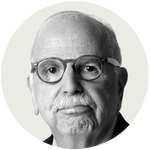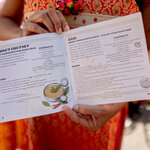88888888888888888888888888888888888888888888888888888888888888888888888888888888888
Martin E. Marty | |
|---|---|
 Marty speaking in 2013 | |
| Born | Martin Emil Marty February 5, 1928 West Point, Nebraska, U.S. |
| Died | February 25, 2025 (aged 97) Minneapolis, Minnesota, U.S. |
| Spouses | |
| Awards |
|
| Ecclesiastical career | |
| Religion | Protestant (Lutheran) |
| Church | |
| Ordained | 1952[5] |
| Academic background | |
| Alma mater | |
| Thesis | The Uses of Infidelity[7] (1956) |
| Academic work | |
| Discipline | |
| Sub-discipline | History of religion |
| Institutions | University of Chicago |
| Doctoral students | |
| Notable works | Righteous Empire (1970) |
| Notable ideas | Public theology |
88888888888888888888888888888888888888888888888888888888888888888888888888888888888
Martin E. Marty (born February 5, 1928, West Point, Nebraska, U.S.—died February 25, 2025, Minneapolis, Minnesota) was an American historian of religion best known as the author of numerous works that examined trends in religion in their broader historical and cultural contexts. His masterwork was the three-volume Modern American Religion (1986–96).
Marty studied at Concordia Seminary in St. Louis, Missouri, receiving a B.A. in theology and church history (1949) and an M.A. in divinity (1952). Ordained in the Lutheran Church—Missouri Synod, he served as assistant pastor of a church in River Forest, Illinois (1952–56), while working toward an S.T.M. (Master in Sacred Theology) at Chicago’s Lutheran School of Theology (1954) and later on a doctorate in American religious and intellectual history at the University of Chicago (1956).
While serving as the founding pastor of a church in Elk Grove Village, Illinois (1957–63), he began his career in publishing, writing books on American religion and the history of Christianity and working for The Christian Century magazine, where he was a weekly columnist and later senior editor. He joined the faculty of the University of Chicago Divinity School in 1963 and taught there until his retirement in 1998.
In dozens of books and thousands of articles that were scholarly in content but also accessible to general readers, Marty examined contemporary religion against the institutional infighting and growing secularity of the 20th and 21st centuries. He wrote much on Protestantism but was also an authority on Roman Catholicism and other traditions. Marty wrote several primers of religious history, including A Short History of Christianity (1959), Pilgrims in Their Own Land: Five Hundred Years of Religion in America (1984), and A Short History of American Catholicism (1995). In 1972 he won a National Book Award for Righteous Empire: The Protestant Experience in America (1971), which described how Protestantism shaped early American culture and then, except for brief revivals, waned after the Civil War. His masterwork was Modern American Religion (1986–96), a three-volume study of the development of American religious life from the late 19th century. His study of religious pluralism in American life in the first decade of the 21st century, When Faiths Collide, was published in 2005. Later books included October 31, 1517: Martin Luther and the Day that Changed the World (2016).
In 1997 Marty was named director of the Public Religion Project (1996–98), a three-year study of religion’s relationship to American public life. In that same year he was awarded the National Humanities Medal and the inaugural Martin E. Marty Award in the Public Understanding of Religion. Though rarely acting in a political role, Marty also accepted in 1997 an appointment to head the Lutheran-Episcopalian Concordat, an ecumenical program almost 30 years in the making. In 1998, in honor of his 70th birthday and 35th year of service, the University of Chicago established the Martin Marty Center for the Advanced Study of Religion.
88888888888888888888888888888888888888888888888888888888888888888888888888888888888
Martin Emil Marty (February 5, 1928 – February 25, 2025) was an American Lutheran religious scholar who wrote extensively on religion in the United States.
Biography
Early life
Marty was born on February 5, 1928, in West Point, Nebraska, to Emil, a parochial school teacher[8] and organist, and Anne Louise (Wuerdemann) Marty.[9] Raised in Iowa and Nebraska, he was a member of the Lutheran Church–Missouri Synod and was educated a Lutheran preparatory school, then at Concordia College in Milwaukee, Wisconsin and Concordia Seminary of St. Louis, Missouri. Marty completed masters level work at the Lutheran School of Theology at Chicago through 1954, and received a Doctor of Philosophy degree from the University of Chicago in 1956. He served as a Lutheran pastor from 1952 to 1967 in the suburbs of Chicago.[6]
Career
In 1958, Marty planted The Lutheran Church of the Holy Spirit[10][11] in Elk Grove Village, Illinois. Though Marty became a founding influence in the Evangelical Lutheran Church in America, Holy Spirit was planted within the Lutheran Church - Missouri Synod and remains a member church of the Lutheran Church - Missouri Synod.[12]
In 1962, Life magazine included Marty among "One Hundred of the Most Important Young Men and Women in the United States” in a special issue focused on what they termed "The Take-Over Generation." Marty was cited as “a penetrating, outspoken critic of suburban church life in America,” who served as associate editor of The Christian Century and led "the fastest growing Lutheran parish in the country.”[13][14]
From 1963 to 1998, Marty taught at the University of Chicago Divinity School, eventually holding an endowed chair, the Fairfax M. Cone Distinguished Service Professorship. His more than 130 doctoral advisees at the University of Chicago included M. Craig Barnes, Jonathan M. Butler, Vincent Harding, Jeffrey Kaplan, James R. Lewis, and John G. Stackhouse Jr.[15]
Marty served as president of the American Academy of Religion, the American Society of Church History, and the American Catholic Historical Association. He was the founding president and later the George B. Caldwell Scholar-in-Residence at the Park Ridge Center for the Study of Health, Faith, and Ethics. He served on two US presidential commissions and was director of both the Fundamentalism Project of the American Academy of Arts and Sciences and the Public Religion Project at the University of Chicago sponsored by the Pew Charitable Trusts. He served at St. Olaf College in Northfield, Minnesota, from 1988 as Regent, Board Chair, Interim President in late 2000, and since 2002 as Senior Regent.[16][17][18]
Marty retired on his seventieth birthday. He held emeritus status at the University of Chicago; he served as Robert W. Woodruff Visiting Professor of Interdisciplinary Studies at Emory University 2003–2004. His first wife, Elsa L. Schumacher died in 1981, and in 1982, he married Harriet J. Meyer.[8] He had seven children (including two foster children), among whom are John Marty, a Minnesota State Senator,[19] and Peter Marty, who hosted the ELCA radio ministry Grace Matters from 2005 to 2009 and is now publisher of The Christian Century magazine and senior pastor of St. Paul Lutheran Church in Davenport, Iowa.[20]
Marty died on February 25, 2025, at the age of 97.[21]
Awards, accolades, and honors
Marty received numerous honors, including the National Humanities Medal, the Medal of the American Academy of Arts and Sciences, the University of Chicago Alumni Medal, the Distinguished Service Medal of the Association of Theological Schools, and 80 honorary doctorates. In 1991, Marty was awarded an honorary Doctor of Humane Letters (LHD) degree from Whittier College.[22] The Martin E. Marty Award for the Public Understanding of Religion is named for Marty and has been awarded annually since 1996.[23]
Named in his honor on his 70th birthday in 1979, the Martin Marty Center for the Advanced Study of Religion is the University of Chicago Divinity School's institute for interdisciplinary research in all fields of the academic study of religion.[8] He was an elected member of the American Antiquarian Society and of the American Philosophical Society[24] and was the Mohandas M. K. Gandhi Fellow of the American Academy of Political and Social Science.
Marty was inducted as a Laureate of The Lincoln Academy of Illinois and awarded the Order of Lincoln (the State's highest honor) by the Governor of Illinois in 1998 in the field of Religion.[25]
Works
Overview
Marty published an authored book and an edited book for every year he was a full-time professor. He maintained that authorial pace for the first decade of his retirement, slowing only in the second. His dozens of published books include Righteous Empire: The Protestant Experience in America (1970), for which he won the National Book Award in category Philosophy and Religion;[26] the encyclopedic five-volume Fundamentalism Project,[27] co-edited with historian R. Scott Appleby, formerly his dissertation advisee; and the biography Martin Luther (2004). He was a columnist for The Christian Century magazine, contributing a column in every issue for 36 years (1972-2008), and served as its associate editor for fifty years, beginning in 1956.[18][28] He also edited the biweekly Context newsletter from 1969 until 2010, and wrote a weekly column distributed electronically as "Sightings" by the Martin Marty Center at the University of Chicago Divinity School. In addition, he has authored over 5,000 articles and many more incidental pieces, encyclopedia entries, forewords, and the like.
Bibliography
Author
- The New Shape of American Religion (1958) New York: Harper and Brothers
- A Short History of Christianity, The World Publishing Company, Cleveland, Ohio (1959)
- Righteous Empire: The Protestant Experience in America (1970), Harper Torchbook 1977 paperback: ISBN 0-06-131931-7, Charles Scribner's Sons & Collier Macmillan Pub. 1986 rev. ed.: ISBN 0-02-376500-3
- Protestantism (1972) Garden City, New York: Image Books. ISBN 0-385-07610-X
- The Public Church: Mainline-Evangelical-Catholic (1981) New York: Crossroads. ISBN 0-8245-0019-9
- A Cry of Absence, Reflections for the Winter of the Heart, (1983) Harper & Row, ISBN 0-06-065434-1
- Pilgrims in Their Own Land: 500 Years of Religion in America (1984) New York: Penguin. ISBN 0-14-00-8268-9
- Modern American Religion. Chicago: University of Chicago Press.
- Volume 1: The Irony of It All, 1893–1919 (1986) ISBN 0-226-50893-5
- Volume 2: The Noise of Conflict, 1919–1941 (1990) ISBN 0-226-50895-1
- Volume 3: Under God, Indivisible, 1941–1960 (1996) ISBN 0-226-50899-4
- Religion and Republic: The American Circumstance (1987) Boston: Beacon Press. ISBN 0-8070-1206-8
- The Glory and the Power: The Fundamentalist Challenge to the Modern World. (1992) Beacon. Boston, Massachusetts.ISBN 0-807-01216-5
- The One and the Many: America's Struggle for the Common Good (1997) Harvard University Press. Cambridge, Massachusetts. ISBN 0-674-63827-1
- Martin Luther (The Penguin Lives Series). New York: Viking (2004) ISBN 0-670-03272-7
- The Protestant Voice in American Pluralism. Aphens, Ga; London: University of Georgia Press. 2004. ISBN 0-8203-2580-5.
- Dietrich Bonhoeffer's Letters and Papers From Prison: A Biography (2011) Princeton University Press. Princeton, New Jersey. ISBN 978-0-69113-921-0
- October 31, 1517: Martin Luther and the Day that Changed the World (2016) Paraclete Press. Brewster, Massachusetts. ISBN 978-1-61261-656-8
Book chapters
- Martin E. Marty. "Half a Life in Religious Studies: Confessions of an 'Historical Historian'." pp. 151–174 in The Craft of Religious Studies, edited by Jon R. Stone. New York: St. Martin's Press, 1998.
- Martin E. Marty, "Locating Jay P. Dolan," in The American Catholic Experience: Essays in Honor of Jay P. Dolan (Catholic University of America Press, 2001), pp. 99–108 online
Articles and monographs
- Marty, Martin E. "Fundamentalism Reborn: Faith and Fanaticism." Saturday Review. May 1980, 37–42.
- Marty, Martin E. "Fundamentalism as a Social Phenomenon." Bulletin of the American Academy of Arts and Sciences 42 (November 1988): 15–29.
- Marty, Martin E. "Too Bad We're So Relevant: The Fundamentalism Project Projected". The Bulletin of the American Academy of Arts and Sciences 49 (March 1996): 22–38.
Editor
- The Place of Bonhoeffer: Problems and possibilities in his thought , Association Press, 1962.
- The Fundamentalism Project, Martin E. Marty and R. Scott Appleby, Series Editors
- Fundamentalisms Observed. The Fundamentalism Project, vol. 1. Chicago, Il; London: University of Chicago Press. 1991. ISBN 0-226-50878-1.
- Fundamentalisms and Society: Reclaiming the Sciences, the Family, and Education. The Fundamentalism Project, vol. 2. Chicago, Il; London: University of Chicago Press. 1993. ISBN 0-226-50880-3.
- Fundamentalisms and the State: Remaking Polities, Economies, and Militance. The Fundamentalism Project, vol. 3. Chicago, Il; London: University of Chicago Press. 1993. ISBN 0-226-50883-8.
- Accounting for Fundamentalisms: The Dynamic Character of Movements. The Fundamentalism Project, vol. 4. Chicago, Il; London: University of Chicago Press. 1994. ISBN 0-226-50885-4.
- Fundamentalisms Comprehended. The Fundamentalism Project, vol. 5. Chicago, Il; London: University of Chicago Press. 1995. ISBN 0-226-50887-0.
- Hizmet Means Service: Perspectives on an Alternative Path Within Islam, University of California Press (2015). ISBN 9780520285187
See also
- Franz Bibfeldt (fictitious theologian promoted by Marty)
References
- "Marty, Martin E. 1928– | Encyclopedia.com". www.encyclopedia.com.
- Ross, Rev Craig (April 21, 2015). "4-19-15, Easter 3 (PR) Do You Have a Summer or Winter Spirituality?".
- Writer, Paul Galloway, Tribune Staff (February 5, 1998). "TWO ESTEMMED CHICAGO CHURCHMEN, ANDREW GREELEY AND MARTIN MARTY, ARE TURNING 70". chicagotribune.com.
- "Harriet Marty". www.illuminos.com.
- "Martin Marty". www.illuminos.com.
- "Martin Emil Marty | Nebraska Authors". nebraskaauthors.org.
- Marty, Martin E. (1956). The Uses of Infidelity: Changing Images of Freethought Opposition to American Churches (PhD thesis). Chicago: University of Chicago. OCLC 844530172.
- Roberts, Sam (March 4, 2025). "Martin E. Marty, Influential Religious Historian, Dies at 97". The New York Times. Vol. 174, no. 60448. p. B12. ISSN 0362-4331. Retrieved March 12, 2025.
- Murray, Wendy (October 23, 2002). "A Sense of Place: The Many Horizons of Martin E. Marty". The Christian Century. Retrieved March 12, 2025.
- "Martin E. Marty, 'most influential interpreter of religion' in U.S., 1928-2025". UChicago News. February 27, 2025. Retrieved May 8, 2025.
- "The Lutheran Church of the Holy Spirit, Website". HolySpiritEGV.
- "Beliefs, Church Website".
- Colasacco, Brett (February 27, 2025). "Martin Marty and the Art of Modern American Religion". Martin Marty Center. Retrieved March 16, 2025.
- "The Take-Over Generation". Life. Vol. 53, no. 11. September 14, 1962 – via Google Books.
- Martin Marty. "Ph.D. advisees". Archived from the original on November 16, 2016. Retrieved May 3, 2013.
- "St. Olaf College | Academic Catalog 2004-06". www.stolaf.edu. Retrieved February 28, 2025.
- College, St Olaf (February 1, 2017). "Dale and Sonya Pedersen Margerum '52: Advancing service". St. Olaf College. Retrieved February 28, 2025.
- Tribune, Bob Goldsborough | Chicago (February 27, 2025). "Martin Marty, influential theologian whose prodigious output helped shape 20th century Christian thought, dies at 97". Chicago Tribune. Retrieved February 28, 2025.
- Marty, Martin E. (2008), The Christian World: A Global History. Random House, back sleeve.
- "About Grace Matters". Grace Matters. Retrieved June 20, 2014.
- "Martin Marty". Legacy. Retrieved February 26, 2025.
- "Honorary Degrees | Whittier College". www.whittier.edu. Retrieved February 19, 2020.
- "Martin E. Marty Public Understanding of Religion Award | aarweb.org". Archived from the original on July 12, 2013.
- "APS Member History". search.amphilsoc.org. Retrieved December 21, 2021.
- "Laureates by Year - The Lincoln Academy of Illinois". The Lincoln Academy of Illinois. Retrieved February 26, 2016.
- "National Book Awards – 1972". National Book Foundation. Retrieved March 8, 2012.
- "Book Series: The Fundamentalism Project". December 20, 2015.
- "Martin Marty's unfinished conversations". The Christian Century. Retrieved March 16, 2025.
88888888888888888888888888888888888888888888888888888888888888888888888888888888888
I was saddened to read about the passing of Martin Marty, one of the most influential theologians in American history.
Martin E. Marty, Influential Religious Historian, Dies at 97
A staunch champion of pluralism, he was described in Time magazine as “the most influential living interpreter of religion in the U.S.”

Martin E. Marty, a pre-eminent religious historian, prolific author, dependable exponent of mainstream Protestantism and staunch champion of pluralism, died on Tuesday in Minneapolis. He was 97.
His death at a retirement home, where he had lived since 2022, was confirmed by his son Peter.
In more than 60 books, thousands of articles and as what he described as a “peregrinating lecturer,” Dr. Marty promoted what he called public theology, or the confluence of fundamental cultural and religious conventions for the common good.
He had “a knack for translating complex ideas into graspable takeaways for diverse audiences,” Peter Marty wrote in an online tribute. Time magazine said he was “generally acknowledged to be the most influential living interpreter of religion in the U.S.”
Advertisement
He disdained extremism and fundamentalism, both by Islamist terrorists and right-wing Protestants. And he warned, in “The One and the Many: America’s Struggle for the Common Good” (1997), that the culture wars had undermined the ideals of e pluribus unum and challenged Americans’ shared heritage.

The nation had fractured, he wrote, between “totalists,” who felt left behind and belittled, and “tribalists,” whose individual pride in race, religion, ethnicity and gender circumscribed their vision of the American mosaic.
The threat of such division to the American experiment was a theme he returned to frequently.
“Nothing is more important than to keep the richness of our pluralism alive,” Dr. Marty once wrote. “To be aware of many different people and different ways, and deal with it.”
In a review of Dr. Marty’s 1991 book, “Modern American Religion, Volume Two,” the Stanford historian David M. Kennedy wrote that “For all the raucous contention he chronicles, Mr. Marty remains an optimist. It is, he concludes in an eloquent peroration, with a nod to James Madison, precisely the plurality of religious voices that has insured the integrity of the social fabric by preventing the lasting dominance of any single group.”

Advertisement
Despite its historical ebb and flow, Dr. Marty insisted that mainstream Protestantism exerted profound influence over American public policy, particularly in the 19th century, though he predicted that no single denomination would ever exert the same degree of dominance again.
“Their winning — at least through their pioneering adventures on fronts dealing with civil rights, internationalism, ecumenism, many issues of sexuality and gender, friendliness to once-warred-against science, and much more — never meant complete victory,” he wrote in The Christian Century magazine in 2013.
“But it did mean,” he added, “that through the years, at least, significant leaders risked much to express their faith beyond church walls, in the larger culture.”
Dr. Marty was one of those leaders.
He marched for civil rights in Selma, Ala., with the Rev. Dr. Martin Luther King Jr., attended the Second Vatican Council as a Protestant observer, and helped found the antiwar organization Clergy and Laymen Concerned About Vietnam. He was president of the American Academy of Religion and the American Society of Church history,

Advertisement
His scholarly achievements were legion. With a former student, R. Scott Appleby, he directed the six-year Fundamentalism Project of the American Academy of Arts and Sciences beginning in 1988, which explored conservative religious movements.
“Only an intellectual giant with Marty’s combination of multidisciplinary fluency and vast erudition could have foreseen the inbreaking of wave upon wave of modern anti-pluralist, anti-modernist assaults upon the liberal worldviews and institutions from the ‘benighted’ margins of Western and westernized societies,” Professor Appleby, who teaches global affairs at the University of Notre Dame, said in a statement after Dr. Marty’s death.
“Marty stayed true to his instincts to come ‘not to condemn, not to praise, but to understand,’” Professor Appleby added.
In 1972 Dr. Marty won a National Book Award for “Righteous Empire: The Protestant Experience in America” (1971).
Among his other books were “A Short History of Christianity” (1959), “A Cry of Absence” (1983), “Pilgrims in Their Own Land: Five Hundred Years of Religion in America” (1984), and “A Short History of American Catholicism” (1995).
Advertisement
“His published output was not only breathtaking but unparalleled among religious historians of any field,” Grant Wacker, an emeritus professor of Christian history at Duke University and a biographer of the Rev. Billy Graham, said in an email. “His wit was legendary. And his heart overflowed with simple human kindness.”
Writing for a Divinity School bulletin in 2018, Professor Wacker quoted an example: “One of the real problems in modern life is that people who are good at being civil lack strong convictions and people who have strong convictions lack civility.”
Martin Emil Marty was born on Feb. 5, 1928, in West Point, Neb. His father, Emil, was a parochial school teacher and organist at Lutheran churches in Nebraska and Iowa. His mother was Anne Louise (Wuerdemann) Marty.
A graduate of a Lutheran preparatory school, he attended Concordia College, Washington University and Concordia Seminary, where he earned a bachelor’s in divinity in 1949 and a master’s in 1952. He received a Master of Sacred Theology degree from the Lutheran School of Theology at Chicago in 1954 and a doctorate from the University of Chicago in 1956.

Advertisement
As an ordained minister in the Evangelical Lutheran Church in America, he served as a pastor in Washington, D.C., Maryland and Chicago’s suburbs. In 1963, he was hired as an associate professor of religious history at the University of Chicago Divinity School, where he taught until 1998.
In 1952 he married Elsa L. Schumacher; she died in 1981. In 1982, he married Harriet J. Meyer, a voice coach and the widow of a seminary classmate.
In addition to his wife and his son Peter, the publisher of The Christian Century magazine, he is survived by three other sons from his first marriage, Joel, Micah and John, who is a Minnesota state senator; a foster daughter, Fran Garcia Carlson; a foster son, Jeff Garcia; a stepdaughter, Ursula Meyer; nine grandchildren and 18 great-grandchildren.
When he retired as a professor on his 70th birthday, the Divinity School honored him by naming the research center he founded in 1979 as the Martin Marty Center for the Public Understanding of Religion.
Asked by the University of Chicago Magazine in 1998 how he’d like to be remembered, he said: “That I was a good teacher.”
Advertisement
In the Mount Rushmore of American religious history and virtue, Professor Wacker once said fulsomely, Dr. Marty “might well rank as the fourth member,” after Dr. King, Billy Graham and Jonathan Edwards, the 18th-century Congregationalist theologian.
“For Marty, the only real swear word was tribalism — watching out for my interest, my family, my town, my country, my tribe — at the expense of others,” Professor Wacker said in an email. “Everyone, and he meant everyone, deserved a seat at the table of public discussion as long as they were willing to play by the rules of civility and reasoned



